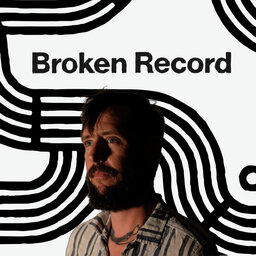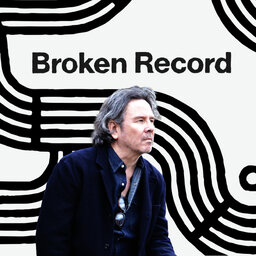Heavy MakeUp
True to her Texas roots, Edie Brickell can seemingly find a song anywhere—including out of thin air. Here It Comes is the new album from Edie and her collaborators, CJ Camerieri and Trever Hagen who are known as Heavy MakeUp.
Heavy MakeUp is, of course, only the latest musical iteration for Edie who’s found herself ever evolving over her career. From her first hit with the New Bohemians, co-writing their massive 1988 single “What I Am,” she’s never stopped looking for songs. She even spent the better part of a decade writing and performing with Steve Martin on their very own musical—Bright Star—that ran on Broadway in 2016.
On today’s episode, Bruce Headlam talks with Edie, CJ and Trever about the origins of Heavy MakeUp and the recording of their new album. We'll also hear a short performance demonstrating the unique improvisational nature of their work.
You can hear a playlist of some of our favorite Heavy MakeUp & Edie Brickell songs HERE.
 Broken Record with Rick Rubin, Malcolm Gladwell, Bruce Headlam and Justin Richmond
Broken Record with Rick Rubin, Malcolm Gladwell, Bruce Headlam and Justin Richmond


